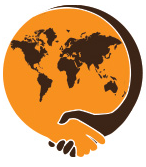Delegates at the first World Conference on Indigenous Peoples (WCIP) adopted an outcome document calling for the appointment of a high-level UN official on indigenous peoples, and for UN system-wide coherence of efforts to bring about the full realization of indigenous peoples' rights.
The conference outcome urges all concerned to address the needs of indigenous women, youth, persons with disabilities, and older people.
 23 September 2014: Delegates at the first World Conference on Indigenous Peoples (WCIP) adopted an outcome document calling for the appointment of a high-level UN official on indigenous peoples, and for UN system-wide coherence of efforts to bring about the full realization of indigenous peoples’ rights. The conference outcome urges all concerned to address the needs of indigenous women, youth, persons with disabilities, and older people.
23 September 2014: Delegates at the first World Conference on Indigenous Peoples (WCIP) adopted an outcome document calling for the appointment of a high-level UN official on indigenous peoples, and for UN system-wide coherence of efforts to bring about the full realization of indigenous peoples’ rights. The conference outcome urges all concerned to address the needs of indigenous women, youth, persons with disabilities, and older people.
Over 1,000 delegates including representatives of indigenous peoples, governments, UN organizations and human rights institutions attended the WCIP, which was held as a Special Session of the UN General Assembly (UNGA), in New York, US, from 22-23 September 2014. The second day of the WCIP took place concurrently with the UN Secretary-General’s Climate Summit. The outcome document was negotiated prior to the conference, and delegates adopted it in their first plenary session.
UNGA President Sam Kutesa, UN Secretary-General Ban Ki-moon and indigenous rights activist Rigoberta Menchú addressed delegates at the opening of the WCIP. Heads of state from Bolivia, Congo, Estonia, Finland and Mexico also addressed the opening plenary, alongside representatives of the Sami and the Onondaga Nation, UN human rights bodies, and regional groupings.
Speakers emphasized the need to translate commitments into action to address the inequalities between indigenous peoples and others. They affirmed the roles of various UN bodies and representatives – the Permanent Forum on Indigenous Issues (PFII), the Special Rapporteur on the Rights of Indigenous Peoples and the Expert Mechanism on the Rights of Indigenous Peoples. They recognized the need for greater participation of indigenous peoples and their representative institutions at the UN.
Kutesa praised the inclusive nature of the process leading up to the WCIP. He noted that the conference outcome document includes commitments to a system-wide action plan, and emphasized the need to address violence against indigenous women. Ban pledged to consult within the UN system and with Member States and indigenous representatives, including giving “serious consideration” to the call contained in the WCIP outcome document for appointing a high-level UN official on indigenous peoples. Observing that some indigenous languages are in danger of extinction, he highlighted that UNDRIP has been translated into over 50 languages besides the six official UN languages.
Menchú highlighted the role of youth and the impacts of violence against indigenous children and young people who are involved in the struggle to protect their land and seas. Aili Keskitalo, President of the Sami Parliament of Norway, welcomed the adoption of the outcome document as an important step towards realizing indigenous peoples’ rights, quoting the Sami proverb, “the night is not so long that the day never comes.”
Three roundtables took place at the conference, on: UN system action for the implementation of indigenous peoples’ rights; implementing the rights of indigenous peoples at the national and local level; and indigenous peoples lands, territories and resources. A panel discussion on indigenous priorities for the post-2015 sustainable development agenda also took place on the second day.
Kanayo Nwanze, President of the International Fund for Agricultural Development (IFAD), highlighted the role of indigenous peoples in the responsible stewardship of land and natural resources. Lasimbang, an indigenous representative from Pengarah Urusetia, Indonesia, said extractive industry practices directly affect indigenous people, and the post-2015 development agenda must address this.
At the close of WCIP, UN Deputy Secretary-General Jan Eliasson pledged to build on the momentum of the conference, affirming that indigenous peoples’ rights, priorities and aspirations for sustainable development must be part of global development priorities beyond 2015.
In a press release, the UN noted that indigenous peoples make up 5% of the world’s population, and 15% of the world’s poor. [UN Press Release, 22 September] [UN Press Release, 23 September] [Sami Parliament President’s Remarks] [UNGA President’s Opening Remarks] [UNGA President’s Closing Remarks] [UNSG’s Remarks] [Deputy UNSG’s Remarks] [Meeting Summary, 22 September] [Meeting Summary, 23 September] [Pre-conference Consultations] [IFAD Press Release] [IISD RS Story on ECLAC Report on Indigenous Rights] [WCIP Outcome Document]